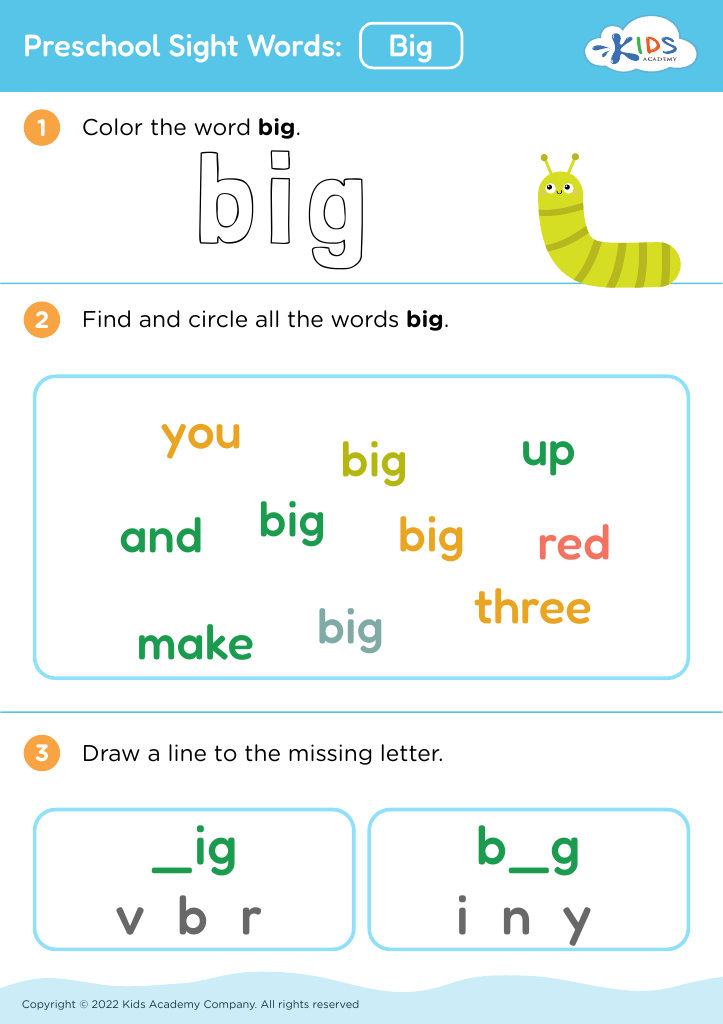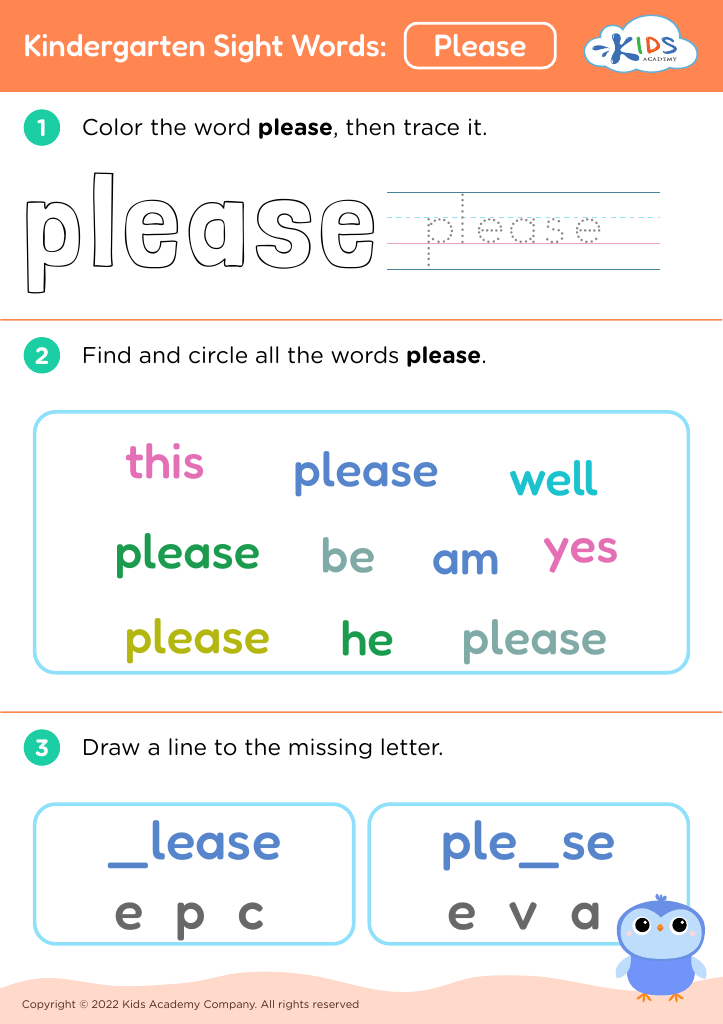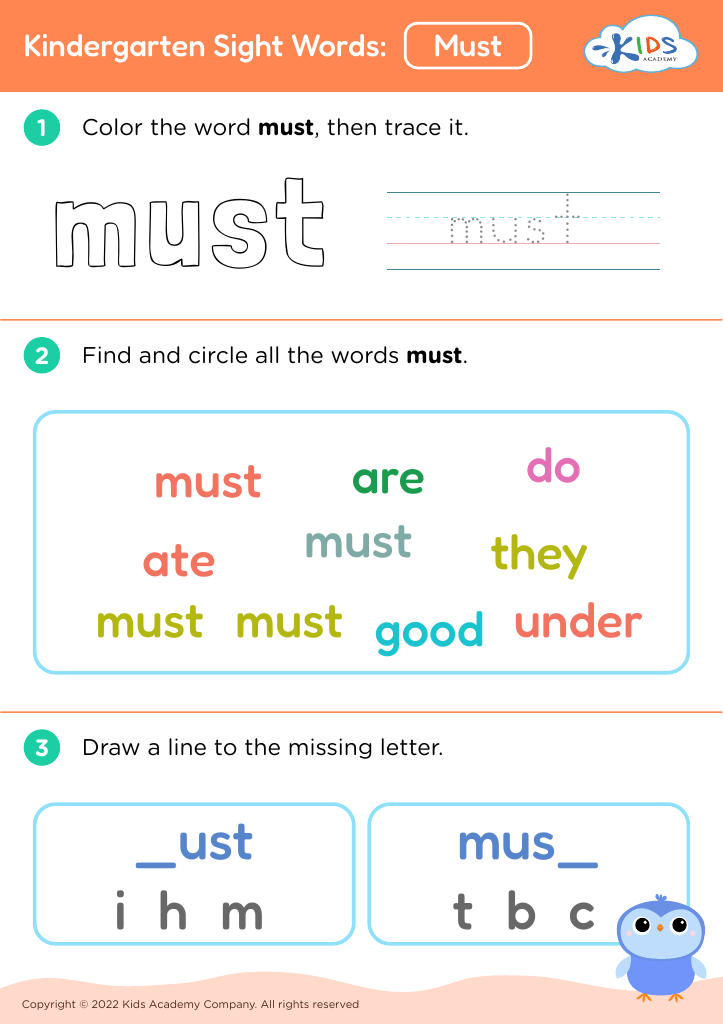Reading comprehension Reading Worksheets for Ages 3-5 - Page 5
99 filtered results
-
From - To
Reading comprehension is a vital skill that lays the foundation for a child’s academic success and social development, particularly for ages 3-5. During this formative stage, children's brains are developing rapidly, and they are absorbing information at an astounding rate. Engaging with texts helps foster critical thinking skills, enhances vocabulary, and cultivates a love for learning.
Parents and teachers should prioritize reading comprehension because it goes beyond decoding words; it involves understanding, interpretation, and connection to personal experiences. By nurturing this skill early on, children learn to make predictions, ask questions, and visualize stories, which deepens their engagement with literature.
Moreover, strong reading comprehension skills correlate with better performance across subjects as they progress through school. Children who comprehend well are equipped to tackle tasks not only in language arts but in math and sciences too, where reading and interpretation are essential.
Additionally, reading together creates bonding moments, instills discipline, and conveys the joy of literacy that can last a lifetime. By encouraging reading comprehension from a young age, parents and teachers set the stage for lifelong learning, improved cognitive skills, and enhanced emotional intelligence. Investing in this critical skill is crucial for every child’s future.























